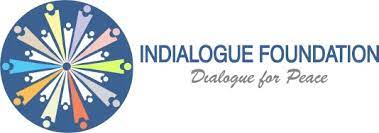Indialogue Foundation invites applications for the certificate course in Dialogue Studies 2023-2024.
Course Description
Dialogue has emerged as a crucial factor in the pacific resolution of conflicts across multicultural societies in the age of globalisation. It is fast emerging as a postmodern interdisciplinary discourse in academia. This course, therefore, aims at familiarising participants with basic concepts, theories, and discourses of Dialogue. The course would involve the theoretical application of Dialogue in the resolution of conflicts in cross-cultural case studies. It would also attempt to contribute to the frameworks of the practice of Dialogue.
Methodology
A combination of historical, comparative, and dialogic methods would be applied in imparting knowledge and conducting classes.
Methods
Apart from organising lectures and workshops by experts, relevant films and documentaries too will be screened during the course.
Relevance
Dialogue in the modern age has emerged as one of the most effective tools of diplomacy to address multi-layered conflict situations. Dialogue Studies significantly contribute to the academic disciplines of international relations as well as conflict and peace studies. It helps shape a dialogic narrative and a democratic personality.
Outcome
The six-month certificate course in Dialogue Studies first and foremost will produce a dialogic world citizen and enhance the capacity of the participants to re-examine and review modalities of the conflicts situations and empathise with “the other”. This course is therefore of significant help to not only professionals but also to the layperson. Moreover, the course will help the participants gain the necessary skills to work with national and international institutions promoting peace and operating in the field of resolution of conflicts.
Curriculum
Module 1: Introduction to Dialogue
1.1 Contextualising Dialogue in the present age: From Modernity to Post-Modernity, Globalisation
1.2 What is dialogue? What is a dialogic society?
1.3 Difference between conversation, discussion, and dialogue
1.4 Conditions and Features of Dialogue
1.5 Types of Dialogue: Inter-person dialogue, intercultural dialogue, interfaith dialogue, interreligious dialogue, intra-religious dialogue, inter-gender dialogue.
Module 2: Approaches/theories in Dialogue
2.1 Modernity, postmodernity, and Dialogue
2.2 Religion, religious traditions, and Dialogue
3. Contemporary thinkers of dialogue: Mahatma Gandhi, Fethullah Gulen, Martin Luther King Jr, the Dalai Lama
Module 3: Dialogue, democracy, and human rights in contemporary society
This section will explore the interconnection between dialogue, democracy, and human rights in multicultural societies.
Module 4: Dialogue and conflict resolution
This section will examine the role of dialogue, its failure, and its success in a select few cases.
Eligibility
All bachelor’s, master’s, and PhD students are eligible to apply.
Attendance
Full attendance is mandatory.
Course Fees
An admission fee of INR 3,000 shall be charged at the time of admission from the selected candidates.
Class Format
All classes will be held online on Zoom. However, regular in-person events will be held in Delhi NCR for all the participants who are around.
Class Schedule
Two-hour sessions will be held on Tuesday and Wednesday every week starting at 4:00 PM.
Application Process
– Interested candidates must fill out this Google Docs Application form before the deadline of 3rd September 2023: Apply Here
– Once you have successfully submitted your application, you will be invited for an online interview on 5th September 2023 (given you meet the eligibility criteria).
– After the interview, all the candidates will be informed of the decision via email.
Selection
Selection will be based on the academic merit of the candidates and their performance in the interview.
Timeline
Application deadline: 3rd Sept 2023
Interview: 5th Sept 2023
Result: 8th Sept 2023
Admission: 8th-11th Sept 2023
Start of session: 12th Sept 2023
End of session: 20th Feb 2024

